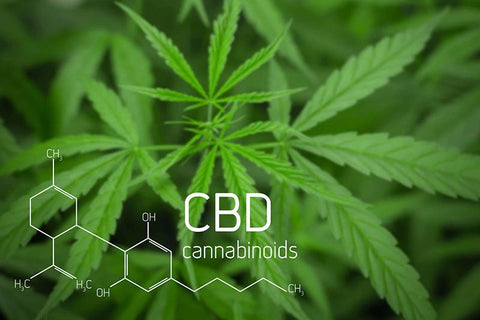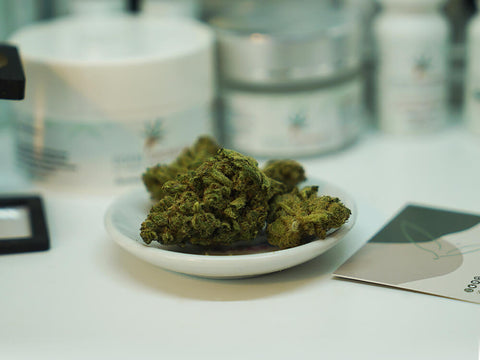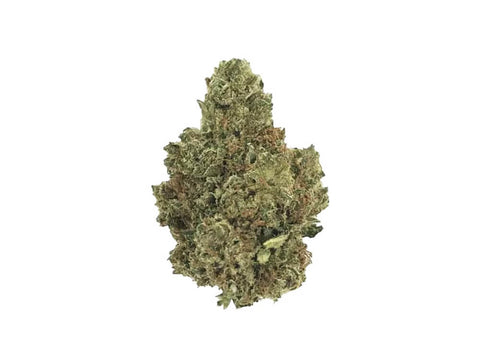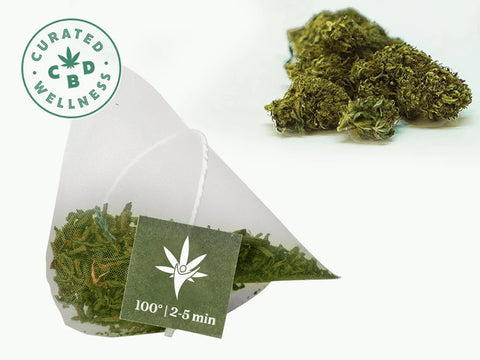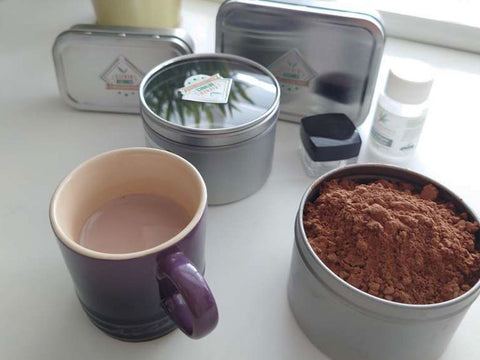Some known or tested benefits of Organic and Full-Spectrum CBD products in Health and Wellness
CBD, or cannabidiol, is a compound found in cannabis and hemp plants. Organic CBD is derived from plants that have been grown without the use of synthetic fertilizers, pesticides, or genetically modified organisms. Full-spectrum CBD products contain a wide range of cannabinoids, including CBD, along with other compounds found naturally in the cannabis plant, like terpenes and flavonoids.
Research into CBD is still in its early stages, and the FDA has approved only one CBD product for a medical purpose - a prescription drug product to treat two severe forms of epilepsy. However, some studies and anecdotal evidence suggest that CBD may have a variety of potential benefits.

- Pain Relief: Some research indicates that CBD may help to manage chronic pain by impacting endocannabinoid receptor activity and reducing inflammation.
- Anxiety and Depression: CBD has been studied for its potential to treat anxiety and depression, with some studies showing promising results. It's thought that CBD may positively affect the way your brain's receptors respond to serotonin, a neurotransmitter linked to mental health.
- Neuroprotective Properties: Researchers are looking at a receptor located in the brain to learn about the ways that CBD could help people with neurodegenerative disorders, which are diseases that cause the brain and nerves to deteriorate over time. This includes Parkinson's disease, stroke, Alzheimer's disease, and multiple sclerosis (MS).
- Heart Health: Recent research has linked CBD with several benefits for the heart and circulatory system, including the ability to lower high blood pressure.
- Substance Abuse Treatment: CBD has been shown in some studies to modify circuits in the brain related to drug addiction, with evidence suggesting it may help treat addiction to opioids and other substances.
- Sleep Disorders: Anecdotal evidence and some studies suggest that CBD can help with sleep disorders like insomnia, possibly due to its potential to alleviate anxiety.
- Anti-Acne: Due to its anti-inflammatory properties, CBD may help reduce sebum production, thereby reducing acne.
- Antipsychotic effects: Studies suggest that CBD may help people with schizophrenia and other mental disorders by reducing psychotic symptoms.
The effects of full-spectrum CBD are often referred to as the "entourage effect," a theory that the compounds in cannabis work together, and as a whole, they produce a better effect than if working separately.
It's important to note that while these benefits are promising, more extensive clinical trials are needed to fully understand CBD's therapeutic potential and safety profile. Also, CBD can interact with several medications, so it's crucial to discuss its use with your healthcare provider before starting any new wellness routine.
As far as we are aware of, the FDA regulates CBD products to some extent but doesn't approve most products. Therefore, quality can vary, and products may not contain the amount of CBD they claim. Always choose CBD products from reputable sources, and consider organic and full-spectrum products to avoid potentially harmful chemicals and
Here is a list of the known and tested benefits of Organic and Full-Spectrum CBD, CBG, THC and other cannabinoids in Health and Wellness.
Cannabis and hemp plants contain a variety of cannabinoids, including CBD (cannabidiol), CBG (cannabigerol), THC (tetrahydrocannabinol), and many others. These compounds interact with the endocannabinoid system in the human body, which is involved in a variety of physiological processes. Here are some of the potential health and wellness benefits of these compounds based on research available to us before the COVID slow down.
- Pain Relief: CBD, THC, and other cannabinoids have been studied for their potential analgesic effects. Some research suggests that these compounds may be effective for chronic pain conditions, neuropathic pain, and inflammation.
- Anxiety and Depression: CBD has been shown in several studies to potentially have anxiolytic and antidepressant effects. Some research also suggests that THC, when used in moderation, might have similar benefits.
- Neuroprotective Properties: Both CBD and THC have been studied for their potential neuroprotective effects. CBD, in particular, has shown promise in conditions like epilepsy, and there's some evidence that it might be beneficial in neurodegenerative diseases like Alzheimer's and Parkinson's.
- Heart Health: Emerging research suggests that CBD might have several benefits for the heart and circulatory system, including the potential to lower high blood pressure.
- Substance Abuse Treatment: Some research suggests that CBD might help people with opioid, cocaine, and/or psychostimulant addiction. It may also help people quit smoking and reduce withdrawals from cannabis and nicotine dependence.
- Sleep Disorders: Both CBD and THC have been used to promote better sleep, though their effectiveness can depend on the cause of the sleep disorder, the dosage, and the individual's personal chemistry.
- Anti-Acne: Due to its anti-inflammatory properties, CBD might help reduce the production of sebum, which causes acne.
- Antipsychotic effects: CBD has shown promise in treating symptoms of psychosis and may have potential as an alternative treatment for schizophrenia and other forms of psychosis.
- Cannabigerol (CBG): CBG, a lesser-known cannabinoid, is the parent compound from which other cannabinoids are synthesized. Preliminary studies suggest that it may have anti-inflammatory, neuroprotective, and antibacterial properties. It may also help reduce intraocular pressure, making it potentially beneficial for glaucoma.
- Other Cannabinoids: There are many other cannabinoids, like CBN (cannabinol), CBC (cannabichromene), and THCV (tetrahydrocannabivarin), each with their unique properties and potential therapeutic benefits. However, research into these compounds is still in the early stages.
The effects of full-spectrum CBD are often referred to as the "entourage effect," a theory that the compounds in cannabis work together, and as a whole, they produce a better effect than if working separately.
It's important to note that while these benefits are promising, more extensive clinical trials are needed to fully understand CBD's therapeutic potential and safety profile. Also, CBD can interact with several medications, so it's crucial to discuss its use with your healthcare provider before starting any new wellness routine.
The FDA regulates CBD products to some extent but doesn't approve most products. Therefore, quality can vary, and products may not contain the amount of CBD they claim. Always choose CBD products from reputable sources, and consider organic and full-spectrum products to avoid potentially harmful chemicals It's important to note that while the potential benefits are promising, more research is needed in all these areas, and results can vary widely between individuals. Always consult with a healthcare provider before starting or changing any treatment regimen.to potentially benefit from the full range of cannabinoids.
What are the known data for CBD or THC products helping with Pain Relief
Research based data up the COVID slowdown shows in several studies suggest that cannabinoids, including CBD and THC, may have pain-relieving properties based on anti-inflametory properties.

- Chronic Pain: A 2008 review assessed how well CBD works to relieve chronic pain. The review looked at studies conducted between the late 1980s and 2007. Based on these reviews, researchers concluded that CBD was effective in overall pain management without adverse side effects. They also noted that CBD was beneficial in treating insomnia related to chronic pain.
- Neuropathic Pain: CBD has shown promise for improving the symptoms of neuropathic pain, a challenging-to-treat pain caused by damage to the somatosensory system. A 2020 study found that oral cannabis extract (OCE) is effective in patients with neuropathic pain.
- Arthritis Pain: A 2016 study found that the topical application of CBD had the potential to relieve pain and inflammation associated with arthritis.
- Cancer Treatment Pain: Some synthesized cannabinoids, like the THC-based drug nabilone, have been approved for treating nausea and vomiting in people receiving chemotherapy. In addition, a few studies have found that cannabinoids can improve cancer-associated pain.
- Multiple Sclerosis: An oral spray called Sativex, which is a combination of THC and CBD, is approved in several countries to treat pain related to multiple sclerosis.
- Migraines: Some research suggests that CBD and THC could potentially alleviate migraines, but more research is needed in this area.
Remember that while these findings are promising, more extensive clinical trials are needed to better understand how CBD and THC can be used to manage pain effectively. In addition, the use of cannabinoids for pain relief is dependent on many factors, including individual health, the source and intensity of pain, and specific product formulations. Always consult a healthcare provider before beginning a new treatment regimen.
What are the known data for CBD or THC products helping with Anxiety and Depression?

There's a growing body of research suggesting that cannabinoids like CBD and THC may have therapeutic potential in treating anxiety and depression. It's important to remember, though, that most of these studies are preclinical or observational, and more rigorous clinical trials are needed.
- CBD and Anxiety: A 2015 analysis of previous studies concluded that CBD oil is a promising treatment for numerous forms of anxiety, including social anxiety disorder, panic disorder, obsessive-compulsive disorder, generalized anxiety disorder, and post-traumatic stress disorder (PTSD). The report cautioned, however, that data on long-term use of CBD oil is limited, and while research has established short-term data, the studies have typically been small and poorly reported.
- CBD and Depression: Animal studies have suggested that CBD has antidepressant-like effects, likely due to its ability to act on the brain's serotonin receptors, which regulate mood and social behavior. A 2019 study on animals found that CBD has rapid and sustained antidepressant-like effects.
- CBD/THC and Anxiety/Depression: THC, the psychoactive component of Cannabis, can have more complex effects. In some people, particularly in lower doses, it can provide relief from anxiety. However, higher amounts of THC can sometimes exacerbate feelings of anxiety or induce paranoia. Its effect on depression is also mixed; some people find it elevates their mood, while others find it has the opposite effect. Much depends on the individual, the dosage, and the specific strain of Cannabis. However, since THC can only be prescribed by physicians, what happens is when the users are unable to convince their doctor to provide it, they make their purchase from the street sellers, which is extremely dangerous as the content cannot be legally verified.
- Human Trials: One 2019 study involved 103 adult patients with anxiety as the primary concern and sleep disturbances as the secondary concern. Over a three-month period, anxiety scores decreased in 79% of the patients, remained unchanged in 10%, and increased in 11%. Sleep scores improved in 67% of patients, remained unchanged in 26%, and worsened in 7%.
Remember, it's essential to consult a healthcare provider before starting or changing any treatment plan. CBD and THC can interact with other medications, and their use may not be appropriate for people with certain health conditions.
What are the known data for CBD or THC products helping with Neuroprotective Properties?
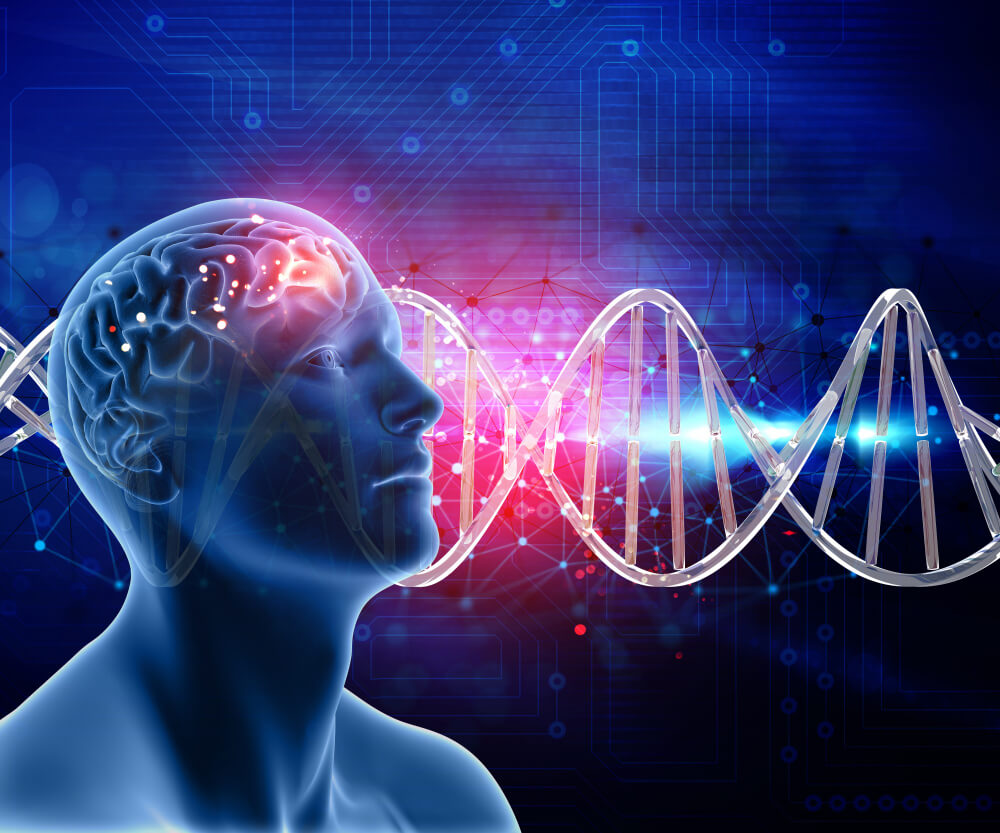
Cannabinoids like CBD CBG and THC interact with the endocannabinoid system in the body, which has been linked to a wide variety of biological processes, including those related to the nervous system. Some research has suggested that cannabinoids may have neuroprotective properties, but these findings are preliminary, and more research is needed.
- CBD and Neurodegenerative Disorders: Research is underway on the potential of CBD to treat neurodegenerative disorders like Alzheimer's, multiple sclerosis (MS), Parkinson's, and stroke. CBD has been found to reduce inflammation and act as an antioxidant, which could reduce damage to the brain and nervous system and promote the growth and development of neurons.
- THC and Neuroprotection: Some studies, have suggested that THC might have neuroprotective qualities. Research has shown that THC can reduce inflammation and oxidative stress, both of which are believed to contribute to neurodegenerative diseases. However, the psychoactive effects of THC can make it less desirable as a treatment for some patients. However, in most of the EU other than Germany, to be able to get medical-grade THC from physicians are extremely challenging.
- Sativex for MS: Sativex, a spray that combines CBD, CBG and some THC has been approved in multiple countries for the treatment of pain related to MS. It has been found to improve spasticity (muscle spasms) and neuropathic pain in MS patients.
- CBD and Epilepsy: In June 2018, the FDA approved Epidiolex, a CBD-based drug for treating two severe types of epilepsy in children, Dravet syndrome and Lennox-Gastaut syndrome. This was the first FDA-approved drug that contains a purified drug substance derived from marijuana.
- CBD and Parkinson's Disease: Some research has suggested that CBD may help improve quality of life for people with Parkinson's disease, but more research is needed.
- CBD and Traumatic Brain Injury (TBI): Preliminary research suggests that CBD might have a protective effect on the brain following a TBI, but further research is needed.
While these findings are promising, the use of CBD and THC for neuroprotection is still a relatively new area of study, and more research is needed to determine how these substances can be used safely and effectively. Always consult a healthcare provider before starting a new treatment regimen.
What are the known data for CBD or THC products helping with Heart Health?
There is emerging evidence that CBD, one of the main substances in cannabis, may have beneficial effects on the heart and circulatory system. Here are some of the key findings that are documented dating just before the COVID slowdown.

- Blood Pressure: A small study published in 2017 found that a single dose of CBD reduced resting blood pressure and the blood pressure response to stress in healthy men, compared to a placebo. High blood pressure is linked to higher risks of several health conditions, including stroke, heart attack, and metabolic syndrome.
- Anti-Inflammatory and Antioxidant Effects: Inflammation and oxidative stress are involved in many heart diseases. CBD has been shown to have potent antioxidant and anti-inflammatory properties, which suggests it may reduce inflammation and oxidative stress in the heart.
- Reduced Stroke Risk: While more research is needed, studies indicate that CBD might improve blood flow and reduce the severity of damage in animal models of stroke.
- Reduced Heart Damage: Studies in animals suggest that CBD may protect against heart damage from various causes and help the heart recover after a heart attack.
However, THC, the psychoactive compound in Cannabis, has a more complex relationship with heart health. Some research suggests that THC can lower blood pressure and improve blood lipid profiles, while other studies show that it can increase heart rate and blood pressure, particularly in those who are not regular users. Therefore, the role of THC in heart health is less clear and may depend on factors like dosage and individual tolerance. One must consider the fact that in the case of a scenario where your physician prescribes the THC, the side effects of extended use is well known and can lead to psychosis.
Remember, while these findings are promising, more extensive clinical trials are needed to better understand how CBD and THC can be used to support heart health. Always consult a healthcare provider before beginning a new treatment regimen.
What are the known data for CBD, CBG or low dosage THC products helping with Substance Abuse Treatment?
Cannabis-derived substances like CBD have been studied for their potential role in substance abuse treatment, with some promising findings based on our crowdsourced data available on the internet.
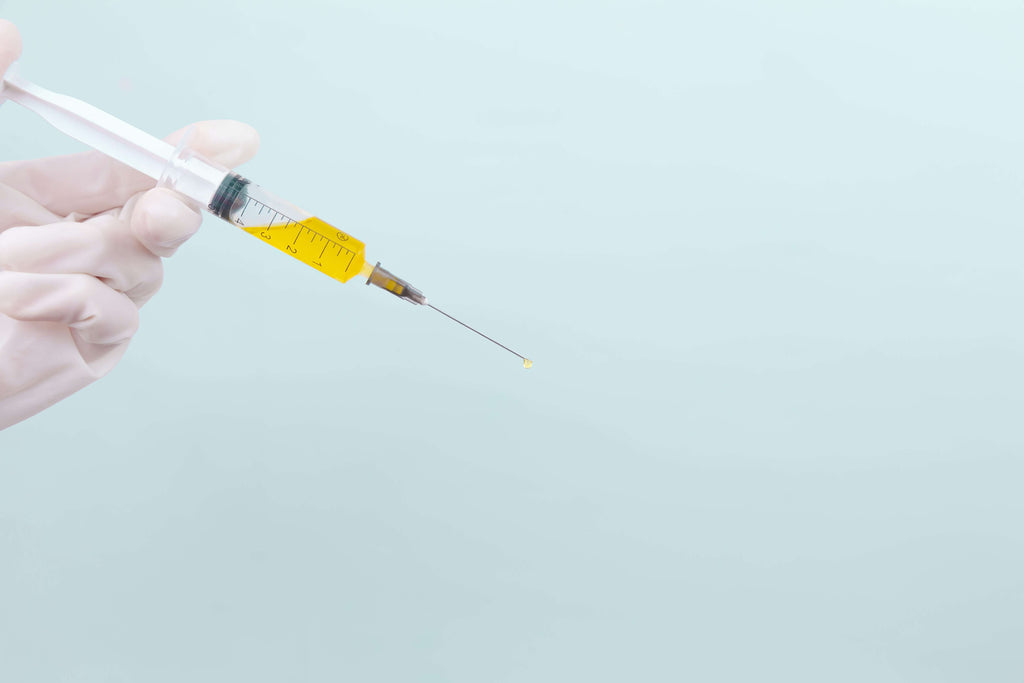
- CBD and Opioid Addiction: Some research suggests that CBD could be beneficial in treating opioid addiction. A study published in the American Journal of Psychiatry in 2019 found that CBD could help reduce cravings and anxiety in individuals with a history of heroin abuse.
- CBD and Tobacco Addiction: A study published in 2013 in the journal Addictive Behaviors found that smokers who used an inhaler containing CBD smoked fewer cigarettes than usual and had no further cravings for nicotine.
- CBD and Alcoholism: Animal studies suggest that CBD may have therapeutic potential for reducing the impact of alcohol on the brain and for alleviating alcohol-induced hepatotoxicity. Further research is needed to explore these effects in humans.
- CBD and Cannabis Dependence: Interestingly, CBD may also be useful in treating cannabis dependence. A study published in 2019 in the journal JAMA Psychiatry found that CBD could help reduce cannabis consumption in individuals with cannabis use disorder.
CBD, CBG and THC's role in substance abuse treatment is less clear and more controversial. While some research suggests that medical cannabis (which contains THC) might be useful in reducing withdrawal symptoms in people with opioid addiction, THC is a psychoactive substance and can lead to dependence itself. Therefore, it is not typically used as a first-line treatment for other substance use disorders. Extreemly low level of THC at >0.2% in CBD/CBG flowers can provide the benefits without the danger of dependency.
While these early findings are promising, more extensive and rigorous clinical trials are needed to better understand how CBD and THC can be used in substance abuse treatment. Always consult a healthcare provider before beginning a new treatment regimen.
What are the known data for CBD or THC products helping Sleep Disorders?

Cannabis-derived substances like CBD and THC have been studied for their potential effects on sleep, with some promising findings. However, more research is needed, here's what we know:
- CBD and Sleep: Some studies suggest that CBD might help with both falling asleep and staying asleep. A 2019 study published in The Permanente Journal involved 72 subjects, with 47 experiencing anxiety and 25 experiencing poor sleep. The subjects were each given 25 milligrams (mg) of CBD in capsule form each day. In the first month, 79.2 percent of the patients reported lower anxiety levels and 66.7 percent reported better sleep.
- High THC content and Sleep: THC, the psychoactive compound in cannabis, has long been recognized as a sleep aid. However, it's a complex relationship. While THC can help individuals fall asleep faster, chronic use might alter the sleep cycle and lead to less restful sleep. Long term use is to be avoide.
- CBD, CBG and REM Sleep Behavior Disorder: People with REM sleep behavior disorder (RBD) physically act out of their dreams. A 2017 study found that CBD might be able to help manage this condition.
- CBD, CBG, THC, and Sleep Apnea: A few small studies have suggested that cannabis might be able to help with sleep apnea, a condition where breathing repeatedly stops and starts during sleep. However, more research is needed in this area.
- CBD and PTSD-Related Sleep Disorders: CBD may also help with PTSD-related sleep disturbances. A 2016 case study explored whether CBD could reduce symptoms of PTSD and anxiety-provoked sleep disorder in a child with a history of trauma. Researchers found that CBD reduced the child's anxiety and helped her sleep.
While these findings are promising, more extensive clinical trials are needed to better understand how CBD and THC can be used to manage sleep disorders. Always consult a healthcare provider before beginning a new treatment regimen.
What are the known data for CBD or THC products helping Anti-Acne?
Several studies have shown that CBD may have beneficial effects on acne due to its anti-inflammatory properties and its ability to control the overproduction of sebum from sebaceous glands.
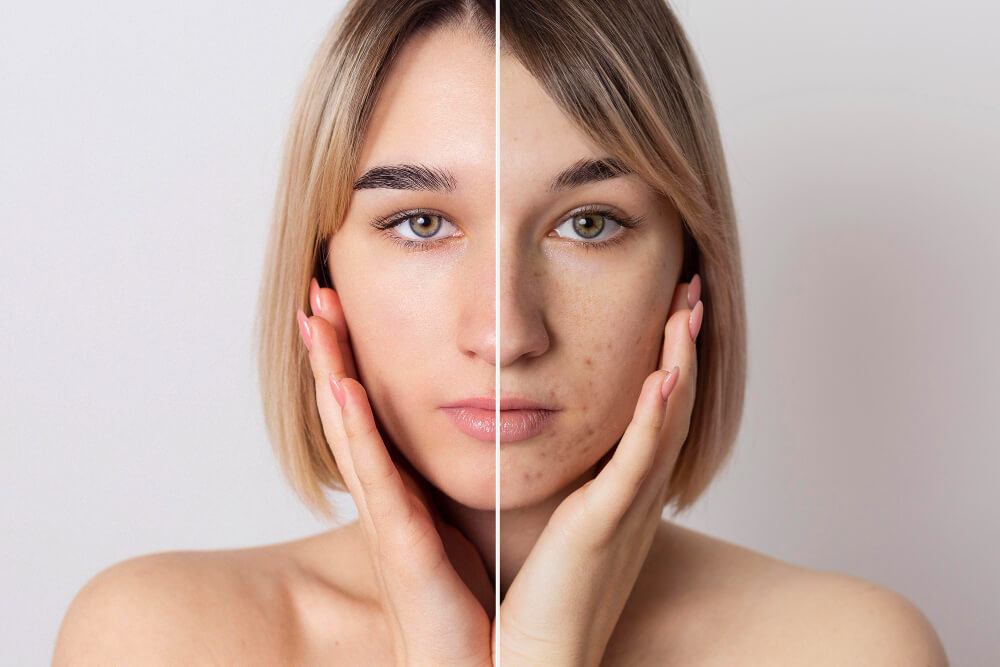
- CBD and Sebum Production: A study published in the Journal of Clinical Investigation and the National Institute of Health discovered that CBD can provide a therapeutic effect in acne treatment by regulating oil production in the sebaceous glands, which is a significant cause of acne.
- CBD and Inflammation: Acne is an inflammatory condition. While several factors trigger acne, it can be partially due to inflammation and overworked sebaceous glands on the body. CBD's anti-inflammatory properties might help reduce the appearance of acne.
- CBD and Acne Scars: There is some evidence to suggest that CBD oil may be beneficial for acne scars, though most research in this area is still in the early stages. It's thought that CBD's anti-inflammatory properties might help to reduce inflammation and therefore improve the appearance of acne scars.
However, as far as we are aware of, no CBD, CBG or THC products have been approved by the FDA specifically for the treatment of acne, and more research is needed to understand their potential benefits and risks fully.
It's always advisable to consult with a dermatologist or healthcare provider before starting any new skincare regimen, especially if you have a history of skin conditions. Also, it's important to remember that what works for one person may not work for another, as acne can have many different causes and can respond differently to different treatments.
What are the known data for CBD or THC products helping Antipsychotic effects?
CBD has been investigated for its potential antipsychotic effects. Some research suggests that CBD may provide benefits for people with certain neuropsychiatric disorders.

- CBD and Schizophrenia: CBD has been studied for its potential effectiveness in treating several different mental health issues, including schizophrenia. A 2012 study found that CBD may produce effects similar to those of certain antipsychotic drugs, and that the compound may provide a safe and effective treatment for people with schizophrenia. However, more research is needed.
- CBD and THC-Induced Psychosis: Some studies suggest that CBD might protect against THC-induced psychosis. THC, the primary psychoactive compound in marijuana, can trigger or exacerbate psychosis in some people. On the other hand, CBD appears to have the opposite effect and might be antipsychotic.
- CBD and Parkinson's Disease Psychosis: Preliminary research indicates that CBD may have antipsychotic effects in Parkinson's disease patients experiencing psychosis. However, more studies are needed to confirm these effects.
- CBD and Bipolar Disorder: While research is limited, there's some evidence that CBD might have antipsychotic effects in people with bipolar disorder, particularly in managing manic symptoms. However, the evidence is not strong, and more research is needed.
THC, on the other hand, has been linked to an increased risk of psychosis, particularly in individuals with a predisposition to such conditions. High doses of THC can also cause transient psychotic symptoms in some people.
It's important to note that while these findings are promising, more extensive clinical trials are needed to understand how CBD can be used in the treatment of psychiatric disorders. Always consult a healthcare provider before beginning a new treatment regimen.







